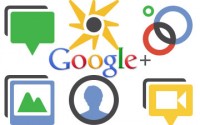 The Urban Dictionary defines google-fu as “the ability to quickly answer any given question using internet resources, such as a search engine.” By that definition, my google-fu is generally pretty strong. I’m a Googler. I google when I want to search the web. I also use Gmail when I want to send or receive email. You can reach me at [email protected]. I’m not shy about typing that address with the @ sign because Gmail protects me from spam. I also use the Google Chrome browser. Chrome lets me keep jillions of tabs open without ever crashing, something I couldn’t say about Firefox when I made the switch. Maybe by now they’ve fixed that in Firefox, but if so then they fixed it too late for me.
The Urban Dictionary defines google-fu as “the ability to quickly answer any given question using internet resources, such as a search engine.” By that definition, my google-fu is generally pretty strong. I’m a Googler. I google when I want to search the web. I also use Gmail when I want to send or receive email. You can reach me at [email protected]. I’m not shy about typing that address with the @ sign because Gmail protects me from spam. I also use the Google Chrome browser. Chrome lets me keep jillions of tabs open without ever crashing, something I couldn’t say about Firefox when I made the switch. Maybe by now they’ve fixed that in Firefox, but if so then they fixed it too late for me.
I have decided to master the extended discipline of Google-fu. I’m going for the Google-fu black belt. Google in 2025 is a system for knowledge and sharing that requires the concentration of an enlightened master to grasp. Between the time when those kids from Stanford invented a dandy search engine and last month when they decided to open fire on Facebook with Google+, Google has become the most diversified software service provider on the planet. They offer rarefied search tools like Google scholar, consultative and facilitative utilities like Google moderator, digitized library services, comprehensive geography information, cloud data storage services; and, the full range of what was once “desktop” software is available from Google online: document creation, presentations, drawing, spread-sheets, calendaring, and of course email. All those functions provide a scaffolding for Google’s business model which requires them to be the most powerful advertising presence on the planet.
Google groups contains a searchable archive of hundreds of millions of Usenet postings from the early days of online social networking. The watershed moment for Internet users and Usenet itself came in 1993, the so-called “Eternal September” when AOL opened the floodgates and gave all its zillions of customers access to Usenet groups. Google is preparing for its own version of “Eternal September.” The day is coming soon when all the migration tools will be in place and all the Facebook users will be faced with the shiny new thing that Google is offering them: Google+.
I have faith in Google. I think they can pull it off. Back around the turn of the millennium I became a Google search evangelist. In a way it was a religious thing. I didn’t have any data to support it, but I had faith in Google search results. I preached Google search to anyone who would listen. My faith has been rewarded by Google’s dominance in the search engine wars. I’ve also enjoyed using Intel chip sets running Microsoft Windows, usually in cheap, reliable desktops and laptops by Dell. When the iPad arrived, I got one, but I have to admit I prefer my Windows netbook to the Apple tablet. At that same time I upgraded my cell phone from a kludgy if powerful Palm PDA to the iPhone 4, a decision I have only regretted a little as the Android market begins to appear competitive with the slick Apple mobile dream machine. I really like my iPhone! But check back with me when the contract’s over. By then I’ll doubtless be ready to ditch the iPhone in a Cupertino minute.
The consumer information technology world is in constant turmoil and conflict. War is a dominant metaphor. Besides the search engine wars, we’ve had the browser wars and the “religious war” of Apple versus Microsoft users. Mac users are convinced that Windows users have an inferior product. Windows users are convinced that Mac users are a smug overbearing lot of over-privileged, under-achieving do-do-heads who don’t know anything about computers. This emotional struggle is reminiscent of the American auto industry in the 1950s. People then felt the same kind of emotional attachment to their choice of automobile brand that today they feel for the computer they drive. Ultimately, people ended up driving economical, agile, smaller cars and the Detroit dinosaurs perished, defeated by Asian imports.
The browser war may have quietly ended in detente. Magellan is gone of course. Netscape was crushed by Microsoft which, like IBM of old, tried to impose an “industry standard.” But for its corporate market share, the world would long ago have abandoned Microsoft’s Internet Exploder browser in favor of more standards compliant competitors. In fairness, over the years Microsoft browsers have gotten faster and better, though no better than the competition. A quick count shows three browsers on this computer: Microsoft’s IE9, Firefox 5.0, and Google Chrome 12. For diversity’s sake, I better install Opera 11.5 too.
I am not a geek. Maybe, I have a little nerd in me, but I’m not a techie. I am however consumed with the desire to master the Google. Anybody know where I can hang-out with a google-fu sensei?

